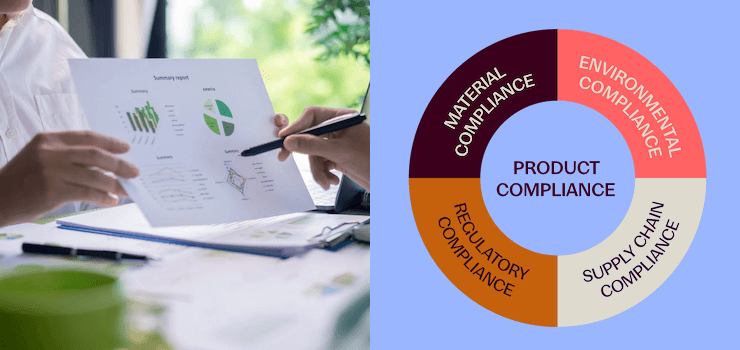Chemical compliance reporting for electronics or products with electronics in them involves providing detailed substance and materials information about the assembly (ex. Auto dashboard) or component (ex. Integrated Circuit). The crux of the issue is that past electronics reporting has typically been pass/fail statements like “Product Z is compliant to Regulation X.” When the regulation to be checked was limited to EU Restrictions on Hazardous Substances (RoHS), the answer was about the 4 heavies plus – lead, mercury, cadmium, hexavalent chrome, and some banned brominated flame retardants. Reporting was also between a relatively small number of electronics companies or distributors.
Compliance Reporting for Electronics – Full details on electronic assemblies now required by the Automotive Industry
There has been an explosion of product-related environmental legislation across the globe and there are many new in-scope products. Automotive has stated they want full details on electronic assemblies now. Industries with complex products with multi-layer supply chains must now gather data from previously unaffected suppliers. And this data needs to be in a format that integrates into existing tools and systems rather than compliance statements or approximations of summary data.
New requirements will include Full Material Disclosure (FMD) to either an industry Declarable Substance List (DSL) or to the EU REACH Candidate List (SVHCs). Because of the high number of tiny parts and the use of distributors for sourcing, this will affect electronics and assemblers more than other industries. Effective solutions will still be tailored to each company’s business strategies – centralized versus not, global or local, robust supplier quality metrics or streamlined sourcing practices focused on cost. The systems and tools currently managing Substance of Concern compliance must adjust, expand, or be replaced.
Why Revolution is needed!
Let’s explore two big drivers which should illustrate some of the challenges. The automotive industry, to prove compliance to the 2003 European End-of-Life Vehicle Directive (ELV), established a database to capture full material disclosures (FMD) for every car part. This was mandatory for automakers to place vehicles on the EU market and they passed this requirement down their entire supply chain. Starting small, the effort expanded from the original 6 OEMs to almost all global automakers and now includes over 100M Material Data Sheets (MDS).
However, when describing electronics assemblies, most Tier 1 suppliers employed a shortcut method of ‘standard compositions’ for a set of materials, or flat BOM approach (all materials under one assembly part) representing a populated circuit board. Now, due to a 2015 EU court judgment known as O5A or ‘once an article, always an article’, REACH safe use information for each material within each component must be reported individually if any SHVCs are present. Shortcuts will no longer be acceptable as automakers must answer to EU authorities to get vehicle type approval.
The SCIP Database – a new reporting requirement for electronic products
The second example concerns an EU in-depth study on lacking REACH article reporting and government enforcement, leading to a rather quick decision to create a new reporting requirement for all EU importers, all parts. The European Chemicals Agency (ECHA) is tasked with creating a database called Substances of Concern in Products (SCIP) to capture this safe use information. This includes everything from a simple part to a subpart within a complex product if that simple part contains any Candidate List substances above 0.1%.
Comments are being gathered, but industry has major concerns about costs and the scale of data transfers needing to be generated. Another big problem is revealing company intellectual property, Bill of Materials, or supplier lists. Companies must also confront how to get this new detailed material data about existing parts when the requirements weren’t in the original supplier contracts. The SCIP database is in trial mode now with plans to deploy January 2021. Yikes!
> Free White Paper – Compliance Reporting for Electronics
What will need to change and how can this new product compliance reporting challenges be accomplished? Download the White Paper to learn more about the next steps for for electronics suppliers and the timeframe that requires to take action now.
> Download Compliance Reporting for Electronics
About the Author
Brenda B. Baney, CEO and founder of BCubed Consulting, is an acknowledged industry leader who works with large and small companies on product environmental stewardship projects. She is a subject-matter expert on environmental product compliance, including ELV, RoHS, REACH and Conflict Minerals. Brenda has been an asset and popular speaker for multiple industries including electronics, automotive, and heavy equipment for initiatives surrounding regulatory compliance data in the supply chain.






